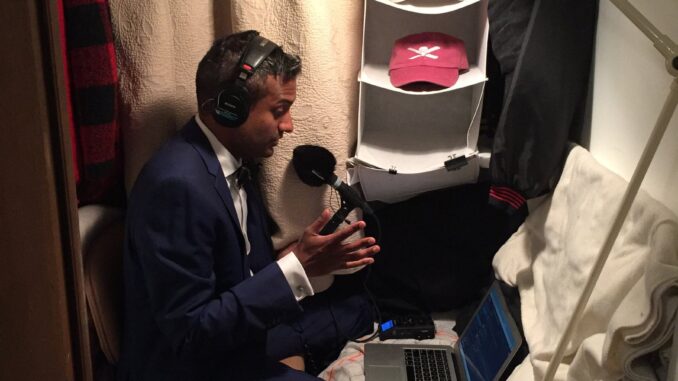
I was traveling across the Southwest a few years ago and stopped into a cafe on the outskirts of a small, dusty town. The cafe was rustic and peculiar in a farm-house kind of way. You know — sorta quaint; sorta homely.
I was famished from not eating all day, and I was eager for the waitress, who was equally rustic and peculiar, to bring food.
Until – – –
I experienced one of those moments when we see something we wish we hadn’t, something we can’t un-see no matter how much we wish we could.
It happened when the waitress emerged from the kitchen to deliver food to a table nearby. What followed was a cockroach that scurried behind her just fast enough to escape the crunch of a swinging kitchen door.
Cockroaches are bad. Cockroaches in cafes are worse. Cockroaches falling from plates are abhorrent.
I called the waitress, explained what I had seen, and canceled my order. She was polite and apologetic, and she explained that the cafe didn’t have a cockroach problem. “We’re inspected, and we always pass. We’ve never had a cockroach anywhere near our food,” she said.
But, I couldn’t un-see that cockroach nor un-think that it might have been on that plate. I left.
So, what does that have to do with sports?
Some time ago, I sat down to watch a basketball game. As the program began, there was music and the voices of broadcasters over the brilliant network logos. Everything seemed normal.
Until – – –
The sight of the broadcasters themselves was shown. Neither was at the game. Instead, it appeared they were covering the game from their homes. I had never heard of such a thing, and the word “heresy” came to mind. What made them any better than me to tell me what was happening if they were sitting at home just like me?
In time I reasoned that they had probably interviewed players and coaches during the week and had analytic assistants during the game. It was pure supposition, but it was enough to keep me tuned in.
However, as I looked closer, things got worse and that’s where the “un-see” factor kicked in.
The play-by-play announcer was enclosed in a space so small that it very well might have been a closet. I suppose that shouldn’t have been terribly off-setting, but it does seem curious and unprofessional unless your name is Marv Albert.
The game analyst was in a larger space that appeared to be a personal library. It had godawful yellow walls and a bookshelf that was laden with the self-applause of abundant trophies, plaques, and the like. Actually, I was okay with that visual. I was less okay with the occasional sounds of squealing children. I love children, but I’m less enamored with the suspicion that between camera shots, my professional game analyst is also a Cheetos-crunching babysitter.
It’s fair to say that those broadcasters would rather have been at the game and were following the network’s orders. And, I must admit that had I closed my eyes for the entirety of the broadcast, I wouldn’t have known the difference. But, it’s hard to watch a game with your eyes closed.
Maybe I’m overly critical here, but it seems to me that optics are important. I mean, we’re talking television, not radio. Even after watching several games with at-home broadcasters, it still bothers me, and I wonder how many fans have been disturbed by it.
I suspect there are many like me, and if so, then the networks need to help us out here. Doing so wouldn’t be hard because there already is one straightforward solution:
Backdrops.
Many of us have used Zoom to keep in touch with others, and we know how easy it is to impose a backdrop over our surroundings to make it appear we are someplace else.
I don’t want networks to lie about where their broadcasters are, but it would help supply their broadcasters with network backdrops to increase the appearance of professionalism.
It’s a feature that can be imposed with absolutely no cost and is so simple that even a non-techy broadcaster can do it.
And if they can’t, then I have a nine year old grandson who can.

